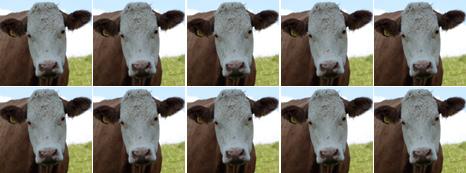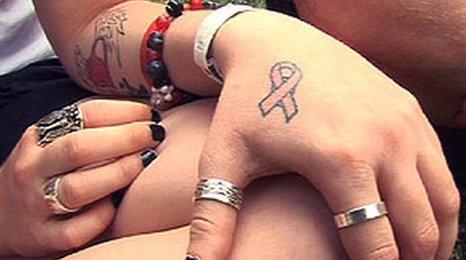Cloned cows: Would you eat them?
- Published

Meat from the offspring of a cloned cow was eaten in the UK in the past year, says the Food Standards Agency (FSA).
This involves two bulls born in the UK from embryos harvested from an American cloned cow.
One was slaughtered last year and would have been eaten, the other was stopped from entering the food chain last week.
Meat and milk from cloned animals is currently not allowed to go on sale in Europe without getting approval.
An EU wide ban is also in the pipeline.
However, the FSA says it has "no concerns" about the meat's safety and there's also no evidence to suggest 'clone products' are dangerous.
'Sold in Scotland'
The cow that ended up in the food chain was reared on a farm in Albrighton, Shropshire.
It's thought the beef was eventually sold in Scottish butchers and supermarkets.
Further claims from earlier this week about milk from another offspring of a cloned cow are still being investigated.
Some people object to cloning because they think it's a 'Frankenstein science' that should be banned or very tightly controlled.
But Hugh Pennington, a microbiology professor at the University of Aberdeen, backed up the FSA's view that, health wise, the meat isn't dangerous to eat.
"It is perfectly safe. They are just the same as their parents from the genetic point of view, so there's no problem there.
"It is just the way they have been produced that is different but there has been no messing around in its genetics, they are exactly the same as an ordinary... cow or bull."
Most people on Newsbeat's Facebook fan page, external are saying they aren't worried about the idea of eating food or drink from a cloned animal - just as long as the evidence says there's no risk.
However there are a few people who are still unsure about the idea and reckon more research needs to be done on the effects.
Log-in to Facebook now and have your say.
- Published4 August 2010

- Published4 August 2010

- Published23 July 2010
